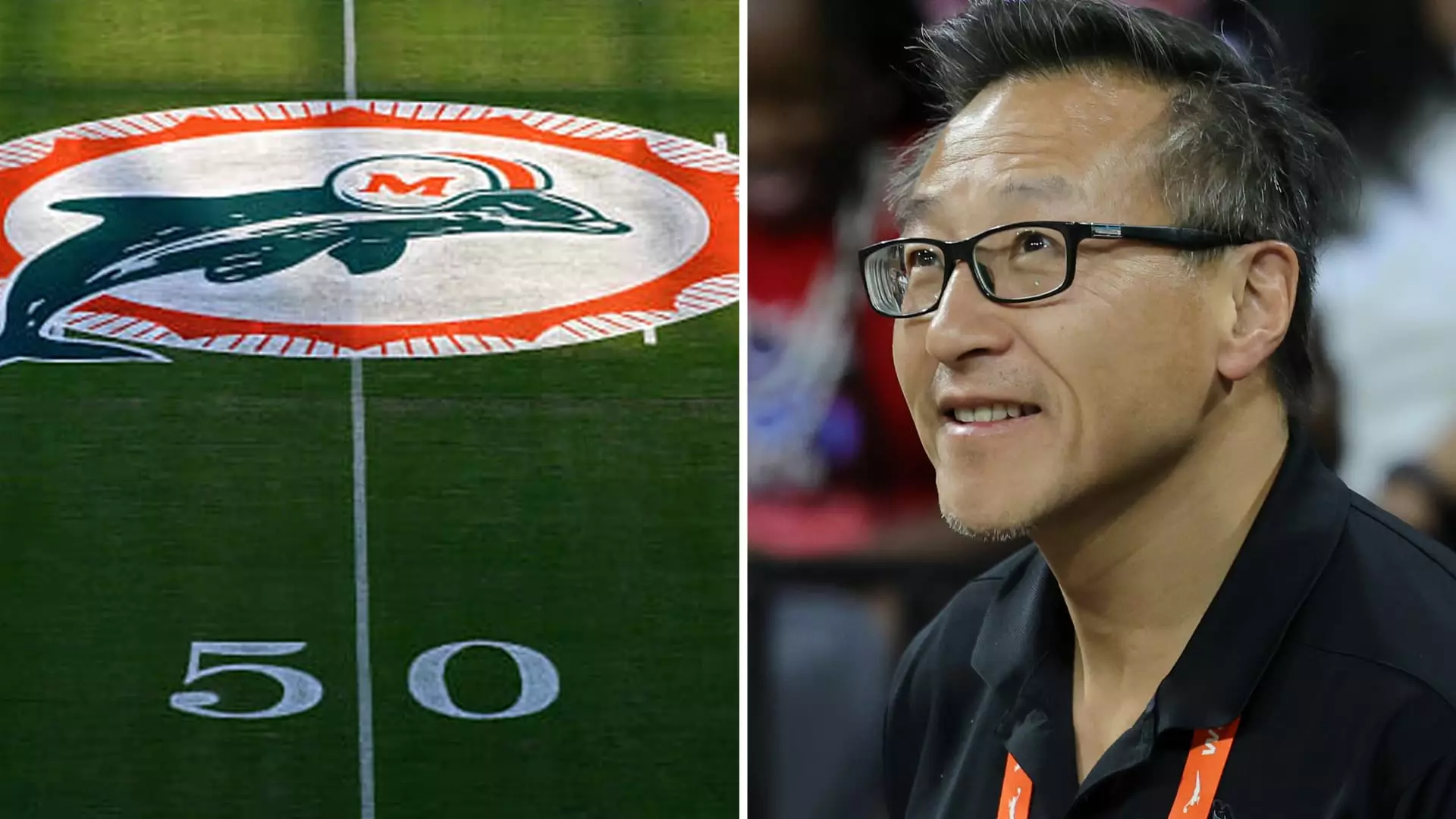The sports landscape is evolving, and the Miami Dolphins are at the forefront of this transformation by engaging in advanced negotiations to sell a minority stake in the franchise. This move, involving private equity firm Ares Management and billionaire Joe Tsai, underscores a burgeoning trend among sports franchise owners who are diversifying their investments and seeking to maximize profitability through strategic asset management.
The Deal Breakdown: Valuation and Assets
According to sources familiar with the ongoing negotiations, the potential deal revolves around a valuation of $8.1 billion. This figure encompasses not only the Dolphins themselves but also Hard Rock Stadium and various prominent sporting events, including the Miami Grand Prix Formula One race and approximately half of the Miami Open tennis tournament. While the Dolphins are considered the eighth most valuable team in the NFL, with an estimated worth of $7.1 billion (excluding the stadium), a controlling share of these assets could easily exceed a $10 billion valuation. This valuation disparity highlights the lucrative potential surrounding multi-faceted sports franchises.
If finalized, this agreement would represent the NFL’s first venture into private equity investments since the league’s regulatory framework was adjusted in August. Ares Management, known for its extensive asset management portfolio valued at $450 billion, represents a formidable player in this deal. Reports indicate that the firm is looking to acquire a 10% ownership stake in the Dolphins, while Tsai, who is well-known as the owner of the Brooklyn Nets, is negotiating to buy an additional 3%.
Stephen Ross, the current owner of the Miami Dolphins, purchased the team in 2009 for $1.1 billion. Through the anticipated minority stake sale, Ross aims to expand his investment horizon, particularly in the South Florida real estate market. His dual role as team owner and stadium operator enables him to optimize revenue from diverse events hosted at Hard Rock Stadium, including the lucrative Miami Grand Prix and the Miami Open. For the Dolphins, this unique operational model generated a commendable revenue of $673 million in 2023.
Ross’s decision to sell a minority stake also comes off the heels of rejecting a substantial $10 billion offer earlier this year for control of the entire organization, emphasizing his desire to maintain family ownership of the team. This decision sheds light on the balance owners must strike between financial opportunities and personal attachments to their franchises.
Changing Dynamics of NFL Ownership
The approval of private equity investment in the NFL marks a significant shift in the league’s long-standing policies. Historically, the NFL maintained a cautious distance from such investments, yet rising franchise valuations have prompted a re-evaluation of this stance. The recent vote allowing select private equity firms to invest up to a 10% stake in teams opens new avenues for financial engagement among NFL owners. This new regulatory approval particularly benefits owners like Ross, who are managing teams amidst a landscape of increasingly lofty valuations.
Investors like Ares Management are now concerning themselves not only with traditional sports franchises but also with associated operational assets such as stadiums and events. By diversifying their portfolios, these investors are strategically positioned to capitalize on rising sports interest and attendance. Tsai’s extensive sports empire, which includes the Brooklyn Nets, San Diego Seals, and Los Angeles FC, further illustrates how owners are converging in their pursuit of enhancing athletic properties across various sports leagues.
The potential involvement of private equity in the NFL could also signal a broader shift in how sports franchises are valued and how they operate. With wealthy investors entering the mix, the landscape could increasingly align with a global sports market where franchises are not merely teams but valuable investment vehicles.
As the Miami Dolphins continue their negotiations, the outcome could resonate well beyond Florida. The decisions made by Ross and his peers may reshape the future of franchise ownership, attracting new investors and promoting a more competitive marketplace in professional sports. As private equity continues to eye partnerships in teams like the Dolphins, there is no telling how the sporting financial ecosystem will evolve in response to these lucrative trends. In essence, the Dolphins’ current situation is a marker of changing tides in NFL ownership and investment strategies, highlighting the intersection of sports, finance, and innovation.

